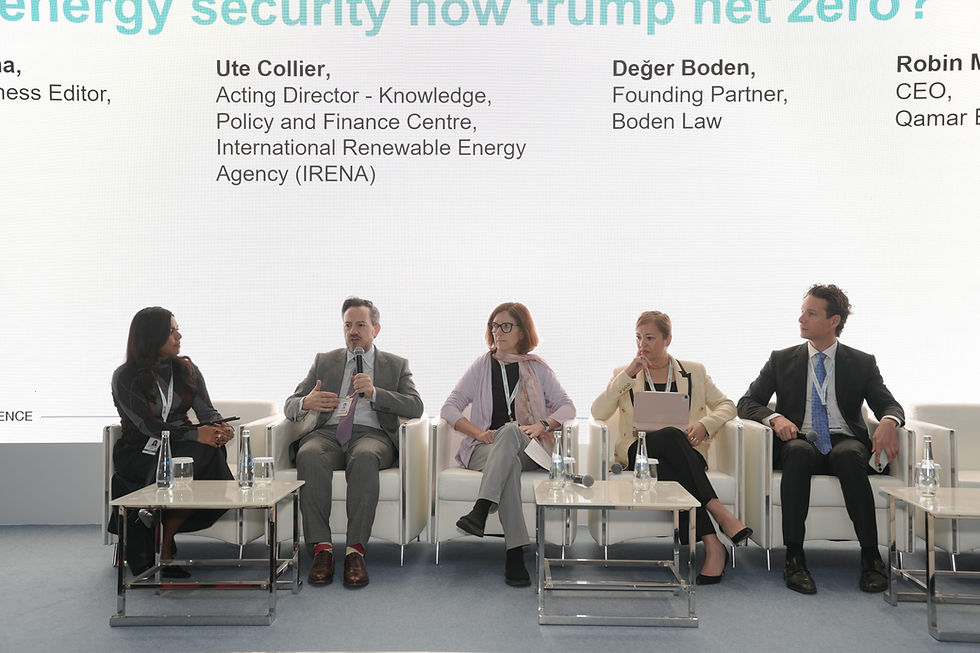MENA can Become a Global Exporter of Green Hydrogen, says Jeffrey Beyer
- Jeffrey Beyer

- Apr 10, 2022
- 2 min read
Jeffrey Beyer, Managing Director of Zest Associates spoke Thursday about opportunities and pathways forward as the MENA region transforms into an essential producer and exporter of green hydrogen.

The discussion, which took place at the Palazzo Versace in Dubai, was part of the event Connecting Green Hydrogen MENA 2022. A range of speakers highlighted the unique position of the MENA region, including its abundant, renewable natural resources, proximity to key export markets and strong existing infrastructure.
“Building on Zest's UAE-UK collaboration, my next objectives are around fostering collaboration within the GCC / MENA,” said Beyer. “We’re hoping to turn these ultra-high ambitions into real, on-the-ground action, through joint accelerators, demonstrations, and regional partnerships for innovation and scale.”
The conference included representatives from organizations around the globe. Among the experts included Toyoda Kohei, Chief Representative for the Middle East at the Japan Bank for International Cooperation, Xander Japin, a business developer at Port of Rotterdam, Peter Gerstl, Director of Hydrogen Sales EMEA at Chart Industries, and Haroon Rahmathulla, Chief Operating Officer at Fertiglobe.
The diversity of the panel brought new perspectives to the conversation. Peter Gerstl spoke on the potential of hydrogen liquefaction, a technology that has not yet spread to the Middle East.
“Although liquid hydrogen might not be seen as a one-size-fits-all solution, it offers substantial benefits and in contrast to other solutions,” said Gerstl. “While Japan, Korea, and the US are clearly building up a liquid hydrogen infrastructure mainly for mobility, Europe seems to stay with gaseous hydrogen. It will be interesting to watch which path the Middle East will follow.”
Toyoda Kohei also spoke of the importance of hydrogen for the Japan Bank of International Cooperation to achieve the emissions goals under its new business plan and ESG policy. “JBIC promotes Energy Transition as a top priority agenda and hydrogen value chain creation is one of the most important policy objectives for JBIC.” The value chain will help Japan to achieve the ambitious objectives set by the government of Japan, which pledged to reduce greenhouse gasses by 46% by 2030.
“It is a difficult challenge because Japan does not have good conditions for renewables and nuclear power generation is politically sensitive,” said Toyoda. “Hydrogen will play an important role in Japan’s long-term energy mix which satisfies its commitment under the Paris Agreement.”
Throughout the conference, the role of collaboration in establishing green hydrogen in the MENA region was a central theme. It was especially important to Jeffrey Beyer, whose upcoming study sets out to determine a UAE-UK green hydrogen corridor.
“It's struck me that more than any other technology, collaboration seems to be the name of the game with hydrogen,” said Beyer. “Hydrogen connects across sectors - power sector, transport, industry, even agriculture through fertilizers - across companies with lots of partnerships, and across governments, with trade and investment MOUs.”


Comments